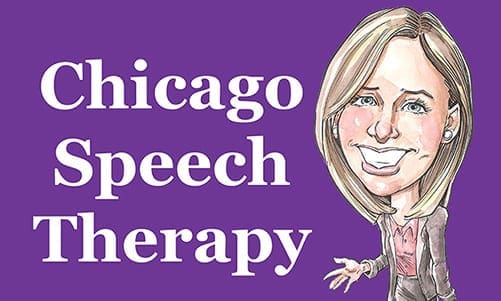Feeding disorders include problems gathering food and getting ready to suck, chew, or swallow it. For example, a child who cannot pick up food and get it to her mouth or cannot completely close her lips to keep food from falling out of her mouth may have a feeding disorder. Swallowing disorders , also called dysphagia (dis-FAY-juh), can occur at …
What is Pediatric Feeding Therapy?
Feeding therapy helps infants, toddlers and children with a wide array of eating and feeding difficulties which may include one or more of the following: Reduced or limited intake Food refusal Food selectivity by type or texture Dysphasia (swallowing difficulty) Oral motor deficits Delayed feeding development Food or swallowing phobias Mealtime tantrums Addressing feeding problems may be important for preventing …
Chicago Speech Therapy can help your child hit these milestones
Like all lists, this isn’t perfect. Use this as a rough guideline when considering your child. If you have any concerns as a parent, see my information at the bottom of this page. Your toddler may benefit from speech therapy. General Oral Motor/Feeding Milestones • 4-6 months- Babies introduced to soft solid foods such as cereals and pureed fruits and …
What is ‘Natural Environment’ speech therapy?
Natural environment speech therapy refers to speech and language therapy services being given in the client’s natural communication environments; whether it is his or her home, school, or after school care facility. Chicago Speech Therapy is proud to offer natural environment (in home) speech therapy services for several reasons: 1. Decreased “warm-up” time from when speech therapy starts until it …
Can a speech therapist determine if my child is a picky or “problem” eater?
During my time as a speech pathologist, I’ve often heard parents say in distress, “I never thought feeding my child would be so difficult.” If you have felt this way, don’t worry you’re normal. This is very common. If your child is struggling with texture sensitivities, reflux, or something else, eating can be an absolute chore that plagues the family …
Areas in which I provide Speech Therapy in Chicago
I provide unique, in-home speech therapy on the north side of Chicago. Right now I am able to serve families that live in or around: Downtown (the Loop) West Loop River North Gold Coast Old Town Lincoln Park Lakeview Bucktown Wicker Park Roscoe Village Uptown If you are concerned with your child’s speech or language development, please contact Chicago Speech …
Speech Therapy Services Provided
Screening and Initial in-home meeting (no charge or obligation) Screening of speech and language development Pupose of meeting to talk through concern and determine if speech evaluation should be scheduled Speech Therapy may not be what is needed Evaluation Speech and language evaluation Includes standardized as well as informal assessments Separate interview conducted with the parents, if needed Report of …
Why I started the website: Chicago Speech Therapy
After conducting speech therapy with toddlers for years I saw a huge need on the near north side of Chicago. Many parents wanted to help their child receive speech therapy, but didn’t have the time or ability to drive them back and forth, wait in the car, and manage other kids in the meantime. So I started a Chicago speech …
Are you concerned about your child’s speech development?
Take this quick quiz (for children 2 years and older): 1) Does your child use at least 6 consonant sounds (examples: m, d, p, b, etc.)? 2) Does your child have a vocabulary of at least 50 words? 3) Does your child follow simple directions? 4) Do strangers have difficulty understanding what your child is saying? 5) Does your child …
